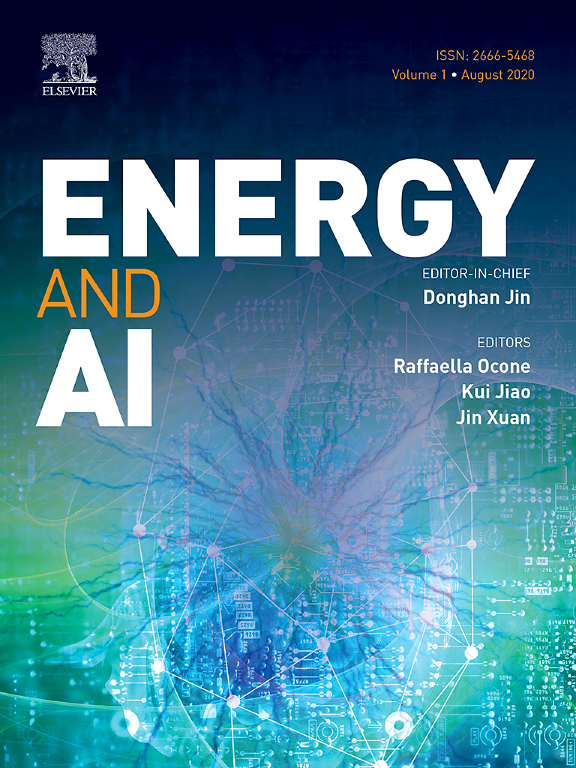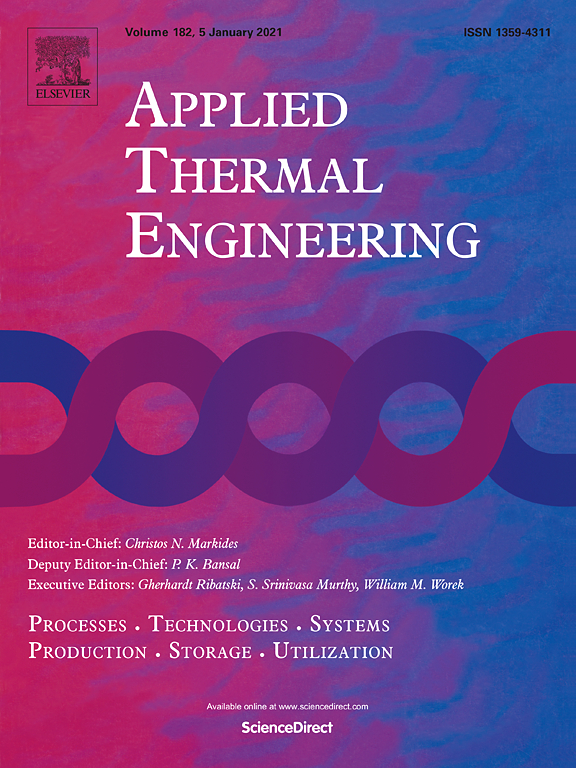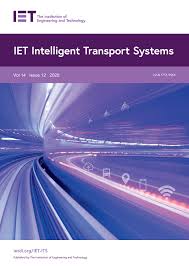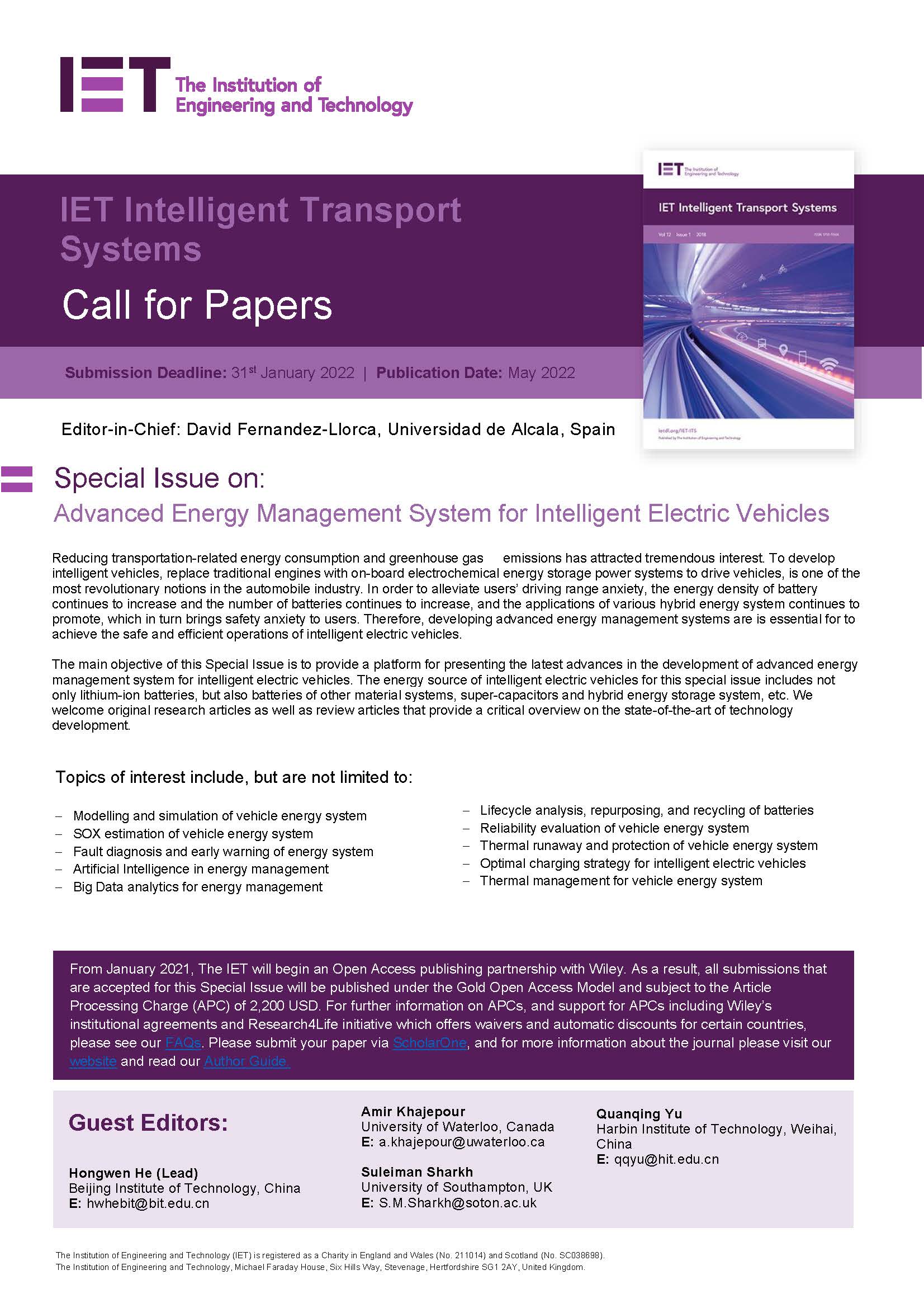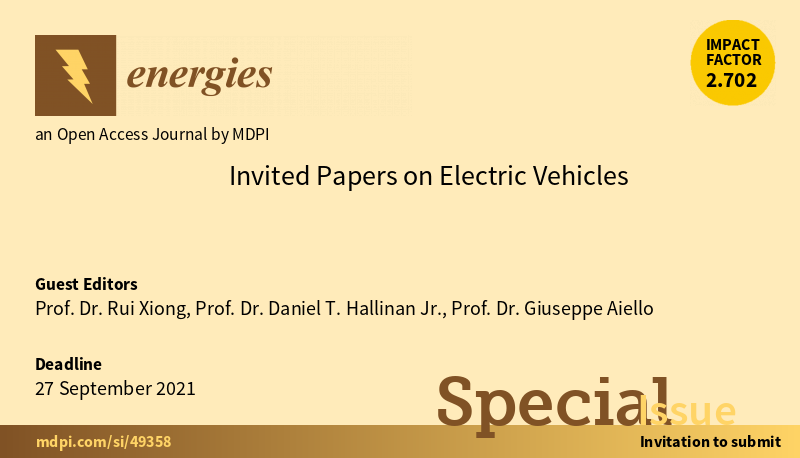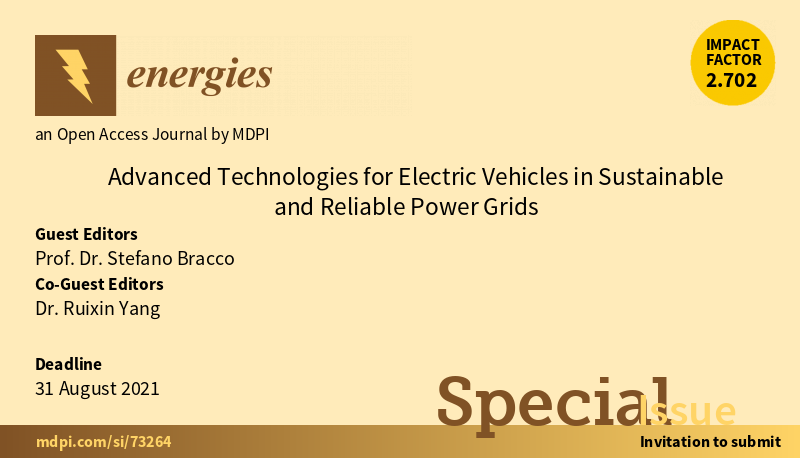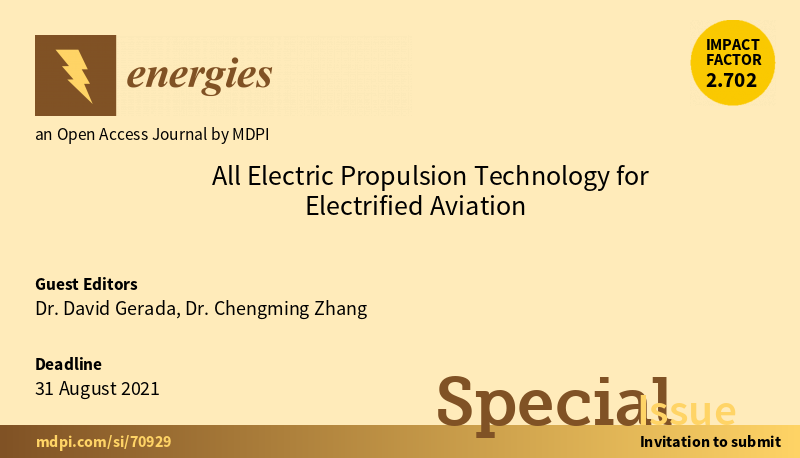Journal CFPs
Herein 4 Journals calling for papers, click the picture to view or read the text below:
| |||
15 OCT 2021 | 1 Nov 2021 | 1 Nov 2021 | 1 Sep 2021 |
Update: 2021-01-01
AI in Advanced Energy Storage Technologies (deadline:28 February 2021)
Background and Rationale
Renewable energy sources (e.g., solar, wind, hydro, biomass, geothermal, etc.) are crucial for building a clean and sustainable energy future. These renewables are typically intermittent, unpredictable, unevenly distributed both spatially and temporally, and hence would substantially destabilize the power grids if incorporated directly. Development of efficient and reliable energy storage technologies, therefore, is the linchpin for successful uptake of renewable energy. Despite the significant progress in advanced energy storage technology (AEST), especially those for large-scale energy storage, in the past decade, the demand for smart and efficient energy storage systems is more urgent than ever. Particularly, thanks to the development of internet of things (IoT), tremendous amounts of data regarding the performance and life of energy storage devices become available. The Big Data, together with the advancement in artificial intelligence (AI), open exciting opportunities for optimizing and improving the performance and durability of AEST and developing breakthrough technologies. The main objective of this Special Issue in the journal Energy and AI is to provide a platform for presenting the latest advances in the application of AI in energy storage system, especially large-scale energy storage system.
Topics
● Novel energy storage materials and topologies
● Innovative application of large-scale energy storage system
● Next-generation energy storage technologies
● Modelling, simulation and optimization of energy storage system
● Advanced energy management systems for energy storage
● Advanced control systems for energy storage
● Lifecycle analysis, safety and reliability evaluation of energy storage system
Open access and APC
Energy and AI is an open access journal. All articles published open access will be immediately and permanently free for everyone to read, download, and distribute. For all accepted papers for this special issue, the gold open access publication fee will be waived.
Important dates
● Open for submissions:15 October 2020
● Submission deadline: 28 February 2021
● Special issue online publication: 1 July 2021
Guest Editors
● Prof. Rui Xiong, Beijing Institute of Technology
● Assoc. Prof. Quanqing Yu, Harbin Institute of Technology, Weihai
● Assoc. Prof. Alessandro Romagnoli, Nanyang Technological University,
● Dr. Jakub Jurasz, AGH University of Science and Technology
● Prof. Hailong Li, Malardalen University
● Prof. Xiao-Guang Yang, Pennsylvania State University
Battery thermal management challenge (deadline:1 Nov 2021)
Background and Rationale
Achieving the global energy, sustainability and the decarbonisation targets will rely on new breakthroughs, ideas and concepts. These major achievements are cutting-edge “challenges” for researchers and engineers: Applied Thermal Engineering contributes to the present discussion by proposing “the challenge-led special issue series”. Each special issue within this series aims answering important questions for the current state-of-the-art: when looking all-in-once the papers published in the different special issues, researchers and engineers may find answer, suggestions and ideas to achieve major technical achievements.
The present special issue, within the "challenge-led special issue series", concerns battery technology and, in particular, battery thermal management.
The design and optimization of the thermal management systems is of fundamental importance particularly for batteries of growing energy density and fast-charge capability under different environmental conditions. Perspective papers need to address the battery thermal management challenge within a multi-scale approach (i.e., relating the local-, the battery cell-, the battery module- and the battery pack-scales towards the “system-scale” performances) and encompassing the different cutting-edge topics (i.e., energy densities, safety, battery/system performances, thermal stability, life time, cost of thermal/electrical systems, …). In addition, perspective papers are encouraged to consider both the “component-scale” (viz., the battery component, thermal interface to improve cooling efficiency, the relationship with capacity losses and degradation mechanisms, …) and the “system-scale” (viz., the connection of the battery itself with other components, towards the overall system performances). Interested authors can contact any of the Editor to inquire about the suitability of their manuscript for this special issue.
Important dates
● The first submission date: November 1st, 2020
● The final submission deadline: November 1st, 2021
Editor
Giorgio Besagni
Researcher, Ricerca Sul Sistema Energetico, Italy Email: giorgio.besagni@rse-web.it
Special Issue Editorial Advisory Board
● Yulong Ding, Professor, University of Birmingham, United Kingdom. Email: Y.Ding@bham.ac.uk
● Robert Spotnitz, President, Battery Design LLC, France. Email: rspotnitz@batdesign.com
● Rui Xiong, Professor, Beijing Institute of Technology, China. Email: rxiong@bit.edu.cn
● Billy Wu, Senior Lecturer, Imperial College London, United Kingdom. billy.wu@imperial.ac.uk
Advanced energy management system for intelligent EVs (deadline:1 Nov 2021)
Background and Rationale
Reducing transportation-related energy consumption and greenhouse gas emissions has attracted tremendous interest. To develop intelligent vehicles, replace traditional engines with on-board electrochemical energy storage power systems to drive vehicles, is one of the most revolutionary notions in the automobile industry. In order to alleviate users’ driving range anxiety, the energy density of battery continues to increase and the number of batteries continues to increase, and the applications of various hybrid energy system continues to promote, which in turn brings safety anxiety to users. Therefore, developing advanced energy management systems are is essential for to achieve the safe and efficient operations of intelligent electric vehicles. The main objective of this Special Issue is to provide a platform for presenting the latest advances in the development of advanced energy management system for intelligent electric vehicles. The energy source of intelligent electric vehicles for this special issue includes not only lithium-ion batteries, but also batteries of other material systems, super-capacitors and hybrid energy storage system, etc. We welcome original research articles as well as review articles that provide a critical overview on the state-of-the-art of technology development.
Topics
● Novel energy storage materials and topologies
● Innovative application of large-scale energy storage system
● Next-generation energy storage technologies
● Modelling, simulation and optimization of energy storage system
● Advanced energy management systems for energy storage
● Advanced control systems for energy storage
● Lifecycle analysis, safety and reliability evaluation of energy storage system
Open access and APC
Energy and AI is an open access journal. All articles published open access will be immediately and permanently free for everyone to read, download, and distribute. For all accepted papers for this special issue, the gold open access publication fee will be waived.
Important dates
● Open for submissions:15 Feb 2021
● Submission deadline: 1 November 2021
● Special issue online publication: 1 Feb 2022
Guest Editors
● Prof. Hongwen He, Beijing Institute of Technology
● Prof. Amir Khajepour, University of Waterloo Canada
● Prof. Suleiman Sharkh, University of Waterloo UK
● Assoc. Prof. Quanqing Yu, Harbin Institute of Technology, Weihai
Invited Papers on Electric Vehicles (deadline:27 Sep 2021)
Special Issue Information
Modern logistics and transportation systems generate a large amount of pressure on the ecosphere due to their intense consumption of natural resources and to the emission of pollutants and greenhouse gases. Increasing the sustainability and efficiency of logistic and transportation systems is a fundamental issue for ensuring the conservation of a healthy lifestyle for our future generations. Electric mobility is considered an essential component of efficient and sustainable logistic systems. The transition from fossil fuels to electric propulsion, however, is a complex task and involves many open challenges, concerning, e.g., the design of advanced electric vehicles (EV), the production of energy storage systems (ESS), and the development of adequate aerial, terrestrial, and naval infrastructures. This Special Issue focuses on the landscape of technologies for EV in order to meet technical, socioeconomic, and environmental goals. In particular, this issue seeks to contribute to such topics through enhanced scientific and multidisciplinary knowledge. We therefore invite papers on innovative technical developments, reviews, case studies, as well as analytical and assessment papers from different disciplines that are relevant to the topic of EV. It should be noted that all excellent papers can apply for a certain discount, after been published, it will be marked as a “feature paper”.
Special Issue Editors
● Prof. Dr. Rui Xiong, Department of Vehicle Engineering, School of Mechanical Engineering, Beijing Institute of Technology, No.5 Zhongguancun Street, Beijing 100081, China
● Prof. Dr. Daniel T. Hallinan Jr., Chemical & Biomedical Engineering, FAMU-FSU College of Engineering, 2525 Pottsdamer St, Tallahassee, FL 32310, USA.
● Prof. Dr. Giuseppe Aiello, Dipartimento di Ingegneria, University of Palermo, 90133 Palermo PA, Italy
Advanced Technologies for EVs in ... Grids (deadline:31 Aug 2021)
Special Issue Information
The energy sector is more and more characterized by the spread of distributed generation, energy storage systems, and smart electric mobility. In many countries, renewable energy sources (mainly solar, hydro, and wind) represent a significant share of the national energy mix, and the power system architecture has deeply changed, moving from centralized energy production to decentralized production. Innovative smart grid and microgrid projects have been developed and implemented in different sectors, such as industrial areas or sustainable urban districts. Moreover, the electric mobility sector has recorded fast growth in terms of full-electric and hybrid vehicle sales and installation of chargers. Challenging initiatives related to safe and efficient applications of electric vehicles, as well as to the implementation of smart charging and V2G (vehicle-to-grid) and V2B (vehicle-to-building) technologies have been conducted too. Both renewable power plants and electric mobility infrastructures interact with power networks. The impact of the aforementioned technologies on the power system has to be investigated taking into account technical and economic aspects as well as standards and the current legislative framework. In addition, technical merits in energy storage systems, such as batteries and super/ultra-capacitors are critical for the success of transportation electrification and to foster the utilization of renewable energy sources. This Special Issue will present the research activities focused on the analysis of the impact of electric mobility on power grids, with a particular focus on the interaction of electric vehicles and charging infrastructures with distribution networks and smart grids and microgrids. Moreover, special emphases are given to the design, modeling, management, control, and safety enhancement of energy storage systems, such as batteries, super/ultra-capacitors and fuel cells applied in transportation systems. In particular, we invite the submission of papers addressing issues related to the analysis, simulation, and optimization of both energy storage systems in electric vehicles and electric mobility systems in sustainable grids and microgrids characterized by the presence of renewable power plants and V2G and V2B technologies.
Special Issue Editors
● Prof. Dr. Stefano Bracco, Electrical, Electronics and Telecommunication Engineering and Naval Architecture Department (DITEN), University of Genova, 16145 Genova, Italy
● Dr. Ruixin Yang, Department of Vehicle Engineering, School of Mechanical Engineering, Beijing Institute of Technology, No.5 Zhongguancun Street, Beijing 100081, China.
All Electric Propulsion Technology for Electrified Aviation (deadline:31 Aug 2021)
Special Issue Information
The impact of human aviation activities on the environment is becoming more and more oncerning. Passenger aircraft currently account for 2% of the world's CO2 emissions while consuming 13% of fossil fuel burn within the transportation sector. By the 2050s, the proportion of air travel contributing to climate change is forecast to reach 6-10%. Prioritizing environmental protection, green aviation refers to the use of new fuels such as bio-aviation oil in aircraft, the improvement of intelligent manufacturing processes of high-performance composite materials, the adoption of harmless or low-harm new technologies, together with the development and use of high-efficiency, low-pollution or pollution-free propulsion systems. This Special Issue will present research activities focused on the innovation of energy technologies and emission reduction technologies for multi-electric/all-electric aircraft, including electrical machines, power electronics, composite materials, propulsion architectures, as well as advanced manufacturing.
Special Issue Editors
● Dr. David Gerada, Power Electronics, Machines and Control Group (PEMC), The University of Nottingham, Nottingham NG7 2RD, UK
● Dr. Chengming Zhang, Department of Electrical Engineering, Harbin Institute of Technology, No.92 West Dazhi Street, Harbin city, China.





